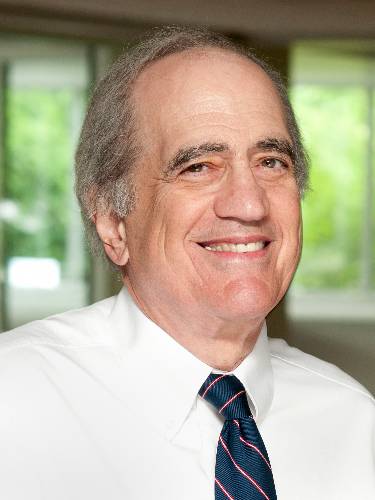Pilot Study on THC Medical Benefits Shows Promise
Research at PCOM
January 8, 2021For individuals with chronic pain, finding effective treatments to manage their condition
can be an excruciating trial and error process. Preliminary results of an ongoing
pilot clinical study on Dronabinol, an FDA-approved, prescription-only synthetic version
of THC, the active ingredient in cannabis, by researchers at Philadelphia College of Osteopathic Medicine (PCOM) show promise for a long-term treatment option for patients with chronic pain.
 This investigation examined effects of THC on individuals suffering from chronic nerve
pain; subjects were evaluated over six weeks. Initial results, presented in September
2020 at the virtual national meeting of the American College of Clinical Pharmacology,
showed a significant reduction in pain scores over typical analgesic treatments. This
ongoing study is being conducted by PCOM researchers; it is led by Frederick J. Goldstein, PhD, FCP, with colleagues Katherine Galluzzi, DO, CMD, FACOFP Dist., second year medical student Madeleine Brown, MS, Jenayle Smith, LPN, and Joseph
Lubeck, DO.
This investigation examined effects of THC on individuals suffering from chronic nerve
pain; subjects were evaluated over six weeks. Initial results, presented in September
2020 at the virtual national meeting of the American College of Clinical Pharmacology,
showed a significant reduction in pain scores over typical analgesic treatments. This
ongoing study is being conducted by PCOM researchers; it is led by Frederick J. Goldstein, PhD, FCP, with colleagues Katherine Galluzzi, DO, CMD, FACOFP Dist., second year medical student Madeleine Brown, MS, Jenayle Smith, LPN, and Joseph
Lubeck, DO.
“I was a little bit nervous, initially, because I didn’t know what to expect,” said
one female study participant, a Black woman who suffers from chronic temporomandibular
pain. “[But] nothing else seems to be working, so why don’t I just give this a try.”
Part of her initial hesitation stemmed from her knowledge of history. The unethical
Tuskegee Syphilis Study, conducted by the U.S. government in the middle part of the
20th Century, subjected Black males to unnecessary pain and suffering; it has historically
stigmatized participation in clinical research by communities of color. The results
of her participation in the study, however, were transformative.
“The first time I took THC, it was the first night I had a good night’s sleep since
2008,” she said. “I was surprised. I was relieved, actually.”
Though this initial research is a limited pilot study, additional volunteers will
be recruited to the study over the next year, according to Dr. Goldstein. The results
from the first group of participants are encouraging and suggest that THC, and medical cannabis more generally, may prove to be an additional treatment option for patients suffering
from chronic neuropathic pain.
About Philadelphia College of Osteopathic Medicine
Established in 1899, Philadelphia College of Osteopathic Medicine (PCOM) has trained
thousands of highly competent, caring physicians, health practitioners and behavioral
scientists who practice a “whole person” approach to care—treating people, not just
symptoms. PCOM, a private, not-for-profit accredited institution of higher education,
operates three campuses (PCOM, PCOM Georgia and PCOM South Georgia) and offers doctoral degrees in clinical psychology, educational psychology, osteopathic
medicine, pharmacy, physical therapy, and school psychology. The college also offers
graduate degrees in applied behavior analysis, applied positive psychology, biomedical
sciences, forensic medicine, medical laboratory science, mental health counseling,
physician assistant studies, and school psychology. PCOM students learn the importance
of health promotion, research, education and service to the community. Through its
community-based Healthcare Centers, PCOM provides care to medically underserved populations.
For more information, visit pcom.edu or call 215-871-6100.
Contact Us
For general media inquiries, please contact the Office of Marketing and Communications
at 215-871-6300 or communications@pcom.edu. Visit our media relations page to view contact information for public relations personnel.
Connect with PCOM

 This investigation examined effects of THC on individuals suffering from chronic nerve
pain; subjects were evaluated over six weeks. Initial results, presented in September
2020 at the virtual national meeting of the American College of Clinical Pharmacology,
showed a significant reduction in pain scores over typical analgesic treatments. This
ongoing study is being conducted by PCOM researchers; it is led by
This investigation examined effects of THC on individuals suffering from chronic nerve
pain; subjects were evaluated over six weeks. Initial results, presented in September
2020 at the virtual national meeting of the American College of Clinical Pharmacology,
showed a significant reduction in pain scores over typical analgesic treatments. This
ongoing study is being conducted by PCOM researchers; it is led by 